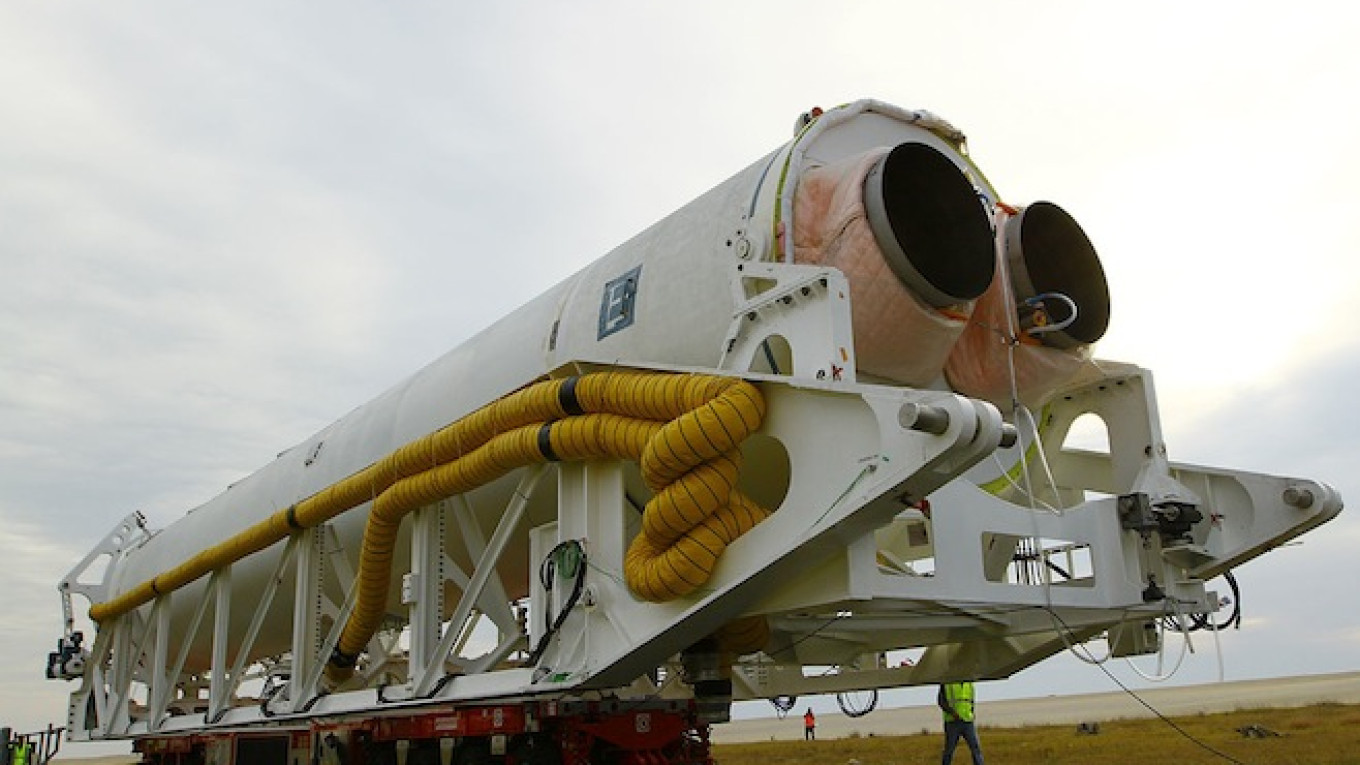Russian rocket maker Energia has signed a $1 billion deal with U.S. space firm Orbital Sciences to deliver 60 RD-181 Russian rocket engines to the U.S., Energia said in a press release Friday.
The deal comes two months after an Antares rocket using a Russian engine exploded above a NASA launch pad in Virginia, fueling calls for the U.S. to free itself of its reliance on Russian equipment.
But far from abandoning Russian gear, Orbital Science — which is contracted to deliver supplies to the International Space Station for NASA — will simply switch the Soviet models it had been using for the newer Russian engine.
The press release quoted Energia's president, Vladimir Solntsev, as saying the deal had been in the works for three years and will enable the company to develop and modernize production lines.
Orbital's Antares rocket has previously launched using refurbished Soviet-built NK-33 engines, which were originally built for the Soviet N1 moon rocket in the early 1970s.
The moon program was canceled before the rocket completed testing, and the engines sat in storage for four decades before being sold to Orbital by the Kuznetsov Design Bureau and refurbished in the U.S.
Under Friday's contract, Kuznetsov's more prominent rival — NPO Energomash, an Energia subsidiary with a long history of rocket engine construction — will test and install the RD-181 engines, while the NK-33 will be phased out.
Energomash has also since the 1990s supplied RD-180 engines for American Atlas rockets, built by United Launch Alliance (ULA) — a conglomerate of U.S. aerospace industry giants Lockheed Martin and Boeing. ULA is regularly contracted to launch important U.S. national security satellites into orbit.
The supply of RD-180 engines for such an important national security role has come under harsh scrutiny amid the crisis in Ukraine, which has sparked tit-for-tat sanctions between Russia and the West over Moscow's support of Ukrainian separatists.
Russia has threatened to end supplies of the RD-180s, but stopped short of a full ban. Instead, Moscow says it is prohibiting deliveries of engines destined for U.S. military launches.
ULA says it has two years worth of the engines in stock, and recently announced a partnership with another U.S. space firm — Blue Origin, created by Amazon founder Jeff Bezos — to create a next- generation U.S. engine to liberate the industry from Russia's dominance of the field.
A Message from The Moscow Times:
Dear readers,
We are facing unprecedented challenges. Russia's Prosecutor General's Office has designated The Moscow Times as an "undesirable" organization, criminalizing our work and putting our staff at risk of prosecution. This follows our earlier unjust labeling as a "foreign agent."
These actions are direct attempts to silence independent journalism in Russia. The authorities claim our work "discredits the decisions of the Russian leadership." We see things differently: we strive to provide accurate, unbiased reporting on Russia.
We, the journalists of The Moscow Times, refuse to be silenced. But to continue our work, we need your help.
Your support, no matter how small, makes a world of difference. If you can, please support us monthly starting from just $2. It's quick to set up, and every contribution makes a significant impact.
By supporting The Moscow Times, you're defending open, independent journalism in the face of repression. Thank you for standing with us.
Remind me later.


